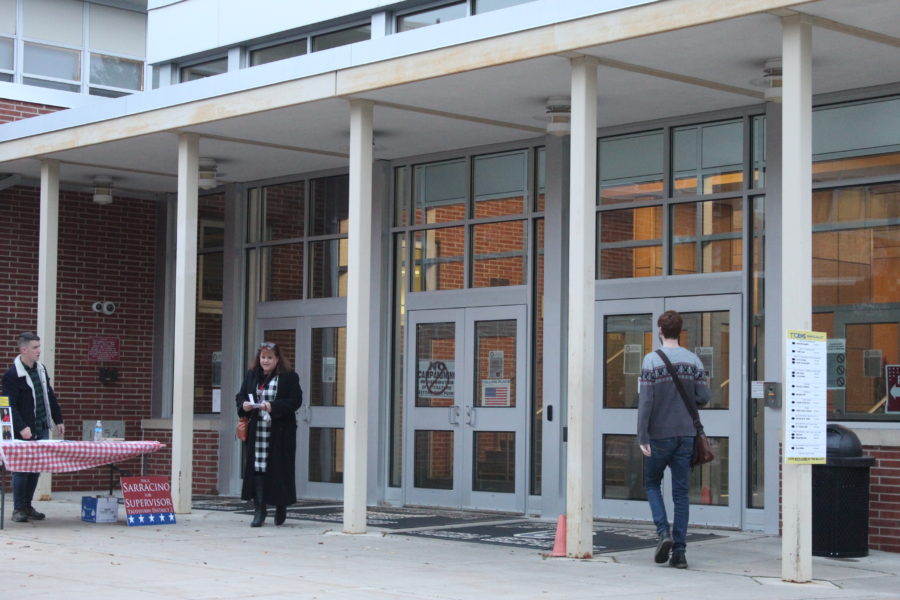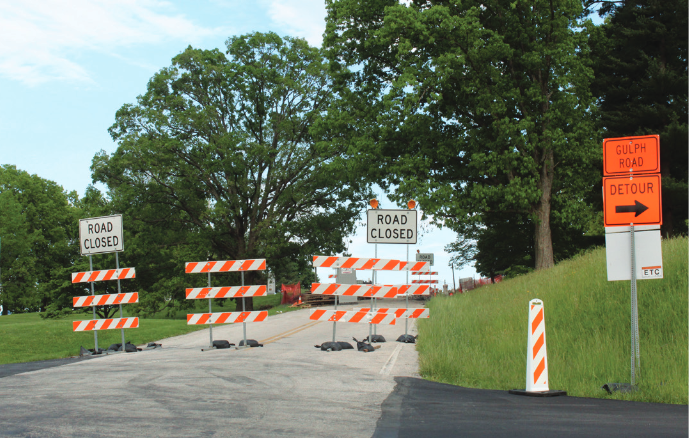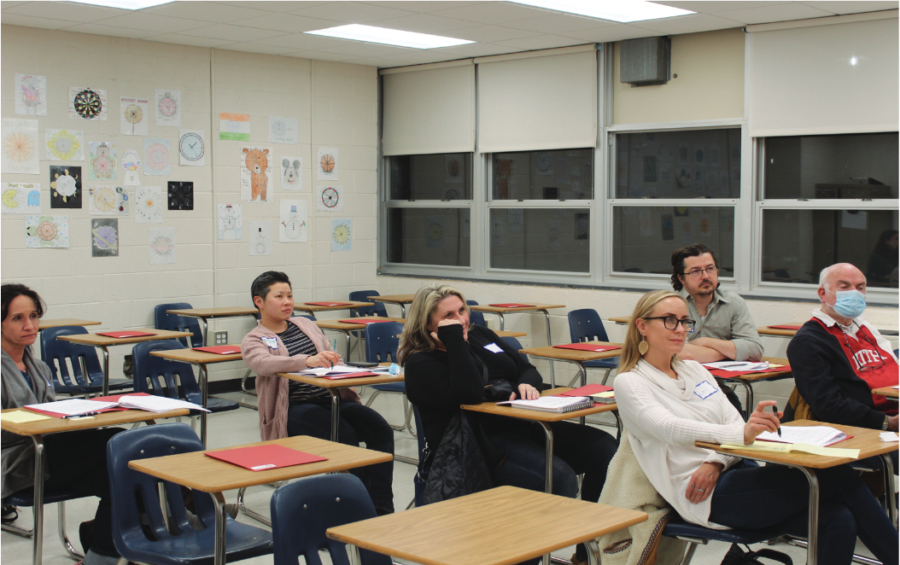By Howard Kim, Staff Reporter
Historically, school board elections receive less attention with around 4,000 voters per electoral region. This year, however, the 2021 school board elections saw more than 6,000 voters per region perform their civic duties, resulting in the Democratic candidates’ sweep of all four available school board seats.
On Nov. 3, four newly-appointed Democratic members — Yolanda Allen (Region 1), Robert Singh (Region 2), Susan Audrain (Region 3) and Maryann Piccioni (Region 3) — were victorious in the polls with margins of victory ranging from 3-11%. They will replace four Democratic board members, continuing the absence of Republican members from last term. Despite the single-party control, U.S. History teacher and advisor of the New Voters Club, Katie Walter, believes that the election results won’t have much of an impact.
“The most recent board was primarily Democratic, so I would assume that with four more Democratic members of the board, it will continue to move in the direction that they have (previously) been moving,” Walter said.
These results were not apparent in the first count of votes on election day. As in-person ballots accumulated at the polling locations, the Republican candidates held significant leads due to Pennsylvania regulation prohibiting the counting of mail-in ballots until after the polls closed at 8 p.m. With Democrats being three times as likely to submit mail-in ballots than Republicans this election, every single Republican candidate was winning with a comfortable lead on Nov. 2.
“On Tuesday night, I was looking at (the election results) and I saw that I was down, (but) I had faith in the campaigning I had done and the high percentage of (uncounted) mail-in votes,” Singh said. “I woke up the next morning and saw that the numbers had changed in my favor.”
In the Region 1 and 2 elections, Allen and Singh won with 55% of the total vote. Because only 41% of Chester County voters are registered Democrats according to Chester County Voter Registration data, Allen knew that she needed support from independent and Republican voters to win. A big campaign strategy of hers was recognizing that addressing all of her constituents’ concerns — no matter their party — was crucial.
“I think that a lot of folks in our area were offended that politics inserted itself into our school system, and I think they wanted out,” Allen said. “They want us to get back to the business of doing what’s best for kids; it doesn’t matter if you’re a Democrat or Republican.”
In order to win over the necessary non-Democrat votes, the four electees embraced the unique local nature of school board elections rather than copying large-scale campaign strategies. While knocking on doors and convincing constituents they were the best fit for the position were their primary methods of publicism, they had to take a step back and remember that building trust can’t be forced.
“Remember, in local races, it’s your neighbors that (are voting). The people that you see at church, the people that you see at the supermarket, the ACME, the Giant,” Piccioni said. “School board is the most personal election because it’s (affecting) their children. It’s (affecting) our children.”
Howard Kim can be reached at [email protected].



























































































